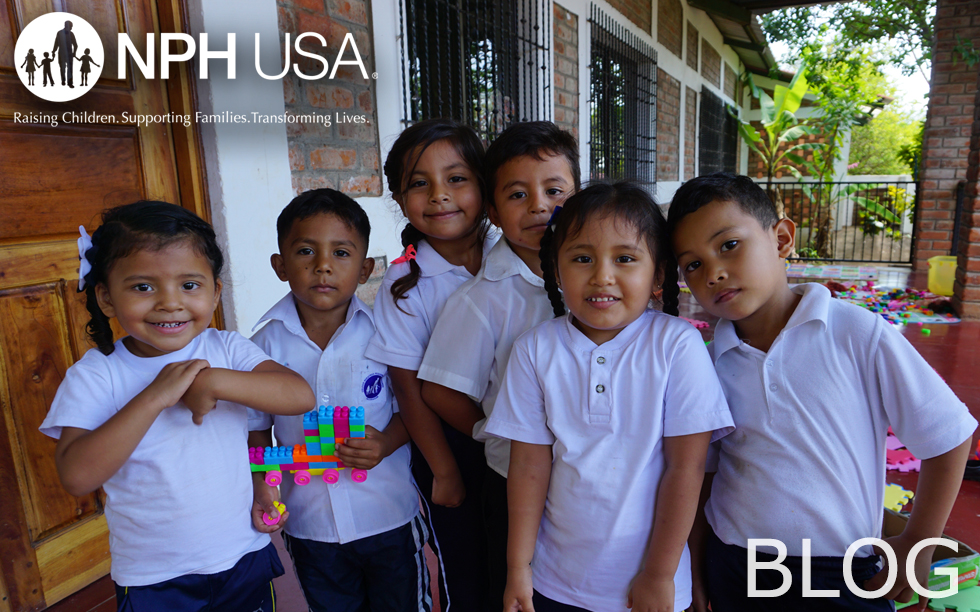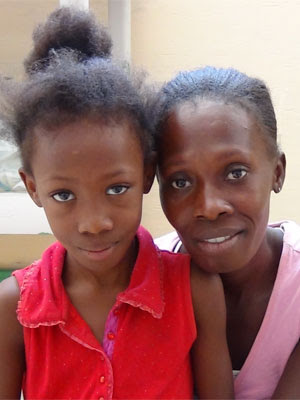Read this story of hope and recovery reported by Dieuveck Rosembert, Communications Officer at NPFS Haiti about little Lea's overcoming Cholera with the help of the St. Luc Rehydration Center.
Carme-suse Resil heads on her way out of the hospital after spending a grueling night sitting by her seven-year-old daughter's side, Lea Basile. Lea came home from school one day recently feeling sick and because Carme-suse couldn't afford a doctor's visit, she followed some home remedies for little Lea. Her symptoms though only got worse, and she was dangerously dehydrated, and her skin was pale. Her neighbor soon drove her and Lea to the St. Luc Rehydration Center.
Once at the hospital, the physicians immediately started Lea on an intravenous drip to put serum into her body to fight the dehydration caused by the Cholera, which is what they ultimately determined had affected her. Oral rehydration fluid was the next part of the recovery process.
While Lea sat on her lap, Carme-suse looked confused as she tried to figure out when, how and where her daughter was infected. "I don't know if it was at school or at home. Perhaps, the plastic bottle I fill up for her lunch every morning was not clean," she said. At home, they use treated water to drink and water purchased from a truck for bathing, washing dishes, utensils and clothes. "The bacteria could have come from that water." It was easy to read the expression on her face that showed concern for her other 6-month-old child at home.
Of course, the water on the truck was not treated. Carme-suse assumed that because she wasn't using the untreated water for drinking and cooking, her family was safe. She was alarmed and enlightened by her visit to the hospital. Untreated water should not be used for bathing, showering, brushing teeth or washing dishes.
Lea was prescribed several medications that Carme-suse could not have afforded anywhere else. One of them was the oral serum that would help reverse the dehydration. The second was the Metronidasol—an antibiotic to fight the Cholera infection. She was also prescribed Zinc to help reduce the irritation and inflammation to the intestines. Carme-suse repeated several times that she could never have afforded another hospital.
St Luc Rehydration Center provided the medical care and medication her daughter needed free of charge.
When asked for a final thought to close the interview, she said that the staff treated her and her daughter with respect and courtesy. She wanted to tell St Luc Rehydration Center, "Mesi, kembe La, kontinie travay pou popilasyon an."—"Thank you, stay firm and continue helping the population."


No comments:
Post a Comment
Note: Only a member of this blog may post a comment.